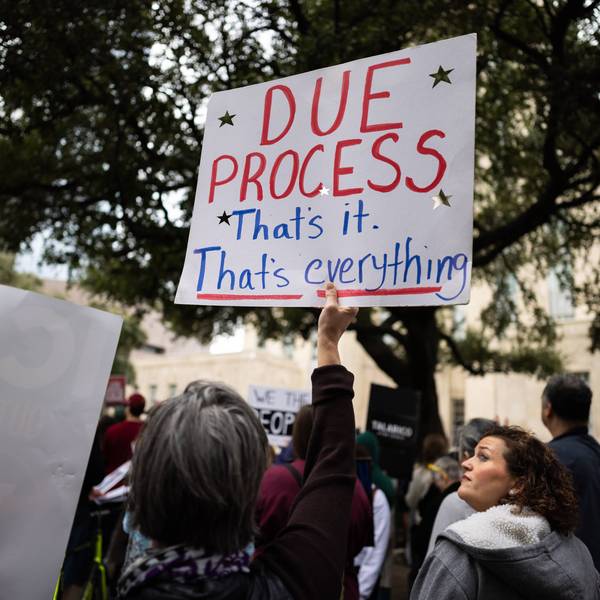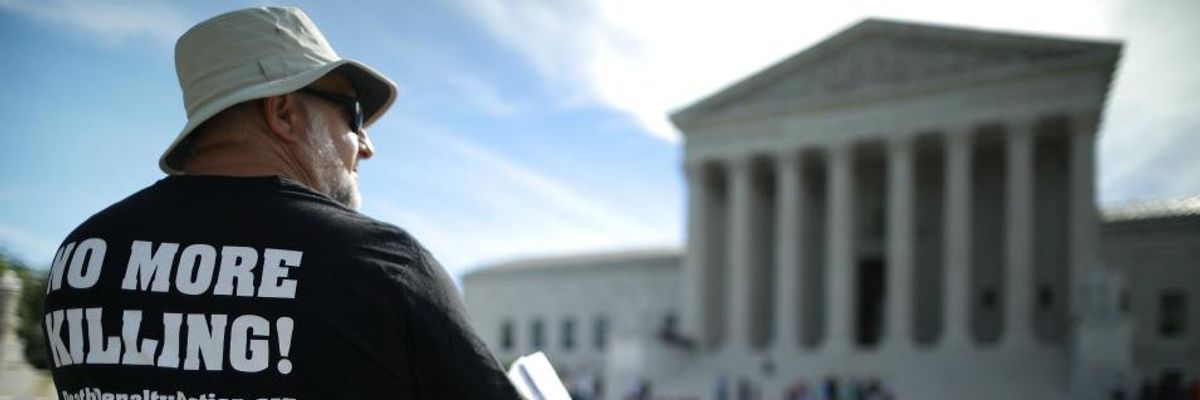This is a developing story... Please check back for possible updates...
A U.S. district judge on Monday temporarily blocked the Trump administration from resuming federal executions after a 17-year informal break--a decision that came mere hours before inmate Daniel Lewis Lee was set to be killed by lethal injection at the prison in Terre Haute, Indiana despite objections from victims' relatives and human rights advocates.
Judge Tanya Chutkan of Washington, D.C. issued a preliminary injunction preventing the execution of Lee and three other death row inmates while courts hear their respective challenges to the administration's controversial lethal injection protocol involving the sole drug pentobarbital, which replaced a three-drug cocktail that had supply issues.
Chutkan reportedly ruled that the protocol secretly developed early in President Donald Trump's first term and announced by U.S. Attorney General William Barr in July 2019 is "very likely to cause extreme pain and needless suffering," which would make it unconstitutional, as a violation the Eighth Amendment's ban on cruel and unusual punishment.
Lee was set to be killed at 4 pm local time on Monday. The federal government had also planned to execute two other inmates at the Indiana prison--Wesley Ira Purkey and Dustin Lee Honken--later this week, followed by Keith Dwayne Nelson on August 28.
As NPR reported Monday:
Chutkan said the last-minute ruling only hours before executions were set to resume for the first time in 17 years was "unfortunate," but she blamed the Justice Department for racing ahead before legal challenges had been fully aired.
...
The decision came amid a wave of litigation involving family members of victims and religious advisers to the men on federal death row.
Ultimately, the U.S. Supreme Court may have the final word.
Chutkan concluded in her opinion (pdf) that there are still legal issues to be resolved, writing that "the public is not served by short-circuiting legitimate judicial process, and is greatly served by attempting to ensure that the most serious punishment is imposed in a manner consistent with our Constitution," according to The Hill.
Shawn Nolan, one of the inmates' attorneys, welcomed Chutkan's decision in a statement also reported by The Hill.
"The government has been trying to plow forward with these executions despite many unanswered questions about the legality of its new execution protocol," Nolan said. "The district court's injunction ensures that the courts will have the opportunity to carefully address those issues."
"Given that these executions threaten to become Coivd-19 super-spreader events," Nolan added, "the injunction will also protect the lives and health of the correctional staff, victim family members, spiritual advisors, attorneys, and others who must witness the executions."
The news was also celebrated by anti-death penalty activists who gathered in Indiana Monday:
The Justice Department immediately appealed Chutkan's ruling to the U.S. Court of Appeals for the District of Columbia Circuit, according to the Associated Press.




